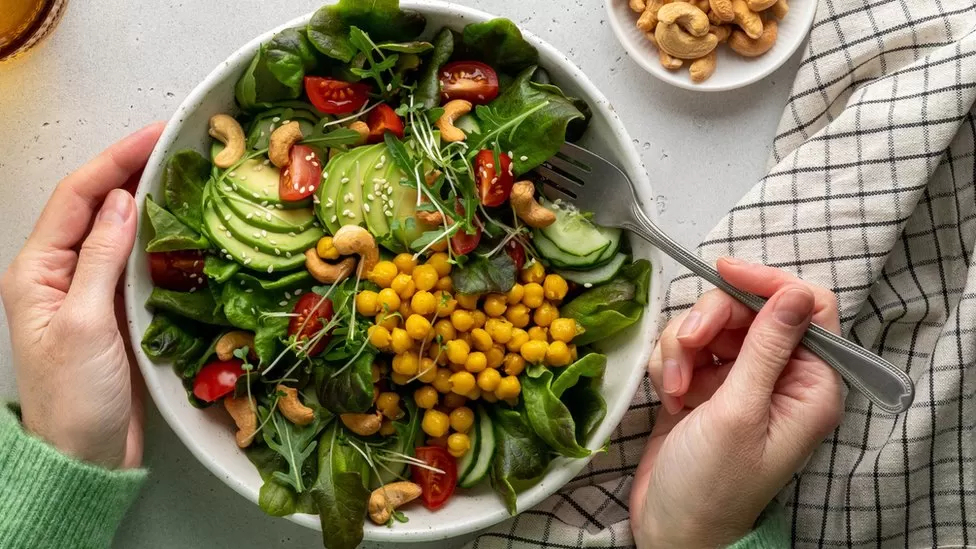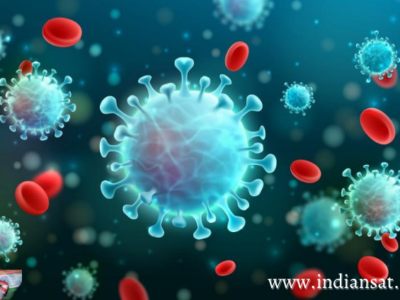Giving plants the starring role in your diet is good for heart health, a review of four decades of data shows. Researchers in Denmark showed vegetarian and vegan diets cut levels of cholesterol and fats in the blood that increase heart attacks. The effect – equivalent to about a third that of taking daily drugs – was “really substantial”, they said. But experts said meat and dairy had their own health benefits – and not all meat-free diets were actually healthy.
The research pulled together 30 trials since 1982 in which scientists gave volunteers a set diet and tracked its impact on heart health. In total, nearly 2,400 people from around the world were involved. High levels of bad cholesterol lead to fatty deposits building up in blood vessels, which can eventually cause heart attacks or strokes.
The results, published in the European Heart Journal, showed vegetarian and vegan diets:
- cut bad cholesterol by 10%
- cut total cholesterol by 7%
- cut apolipoprotein B (the main protein in bad cholesterol) by 14%
“That corresponds to a third of the effect of a cholesterol-lowering statin [pill] – so that’s really substantial,” Prof Ruth Frikke-Schmidt, who conducted the work, at Rigshospitalet, in Denmark, told BBC News. The studies would have needed to have controlled people’s diets for years or decades to see how that change in the blood played out. But Prof Frikke-Schmidt used data from trials of statins to estimate maintaining such a diet for 15 years could cut the risk of cardiovascular disease by 20%.

The World Health Organization estimates cardiovascular disease kills nearly 18 million people every year. Despite the health benefits of following a more plant-based diet, Prof Frikke-Schmidt warned that anyone following such a diet should come off drugs they have been prescribed because they are at risk of heart disease.
Sugary drinks
She choses to eat a mostly plant-based diet, with some chicken and white fish for “my health, the environment and because I like it”. Other diets that incorporate meat, such as the Mediterranean diet, have also been shown to be healthy. Prof Frikke-Schmidt said meat did not have to be excluded but “the important message is ‘plant-based'”, as this was good for both health and the environment. But it is worth noting people on the trials were given “healthy” vegetarian and vegan meals.
Vegetables, fruits, nuts, pulses such as chickpeas and wholegrains are very different to sweets, crisps and sugary drinks despite both being meat-free. “Not all plant-based diets are equal,” Prof Aedin Cassidy, from Queen’s University Belfast, said. And diets such as “those including refined carbohydrates, processed foods high in fat/salt” would still be unhealthy.
There have also been questions about the current wave of highly processed vegan foods, which are markedly different to a vegan diet from the 1980s. Quadram Institute chief scientific officer Prof Martin Warren said: “Animal-based products such as meat do represent nutrient-dense foods that have other benefits. “Similarly, crop-based diets can be low in certain micronutrients – so in general, reducing meat consumption but maintaining a broad and varied diet is good for health.”
![]()





